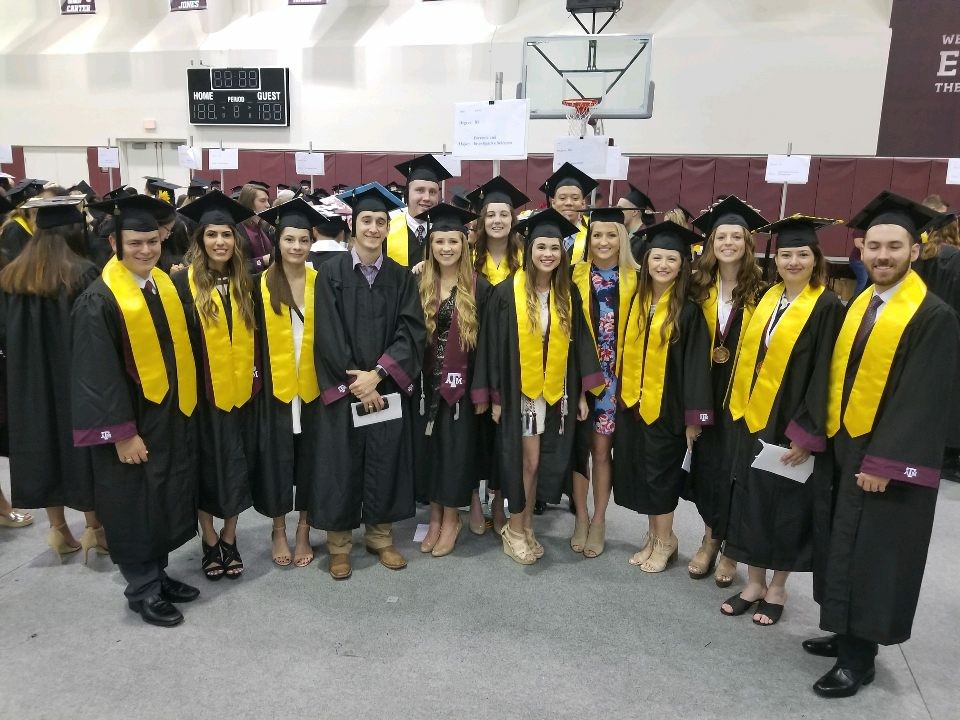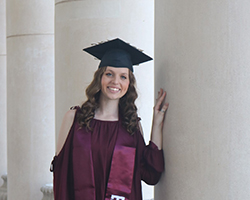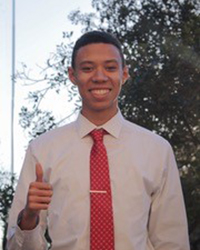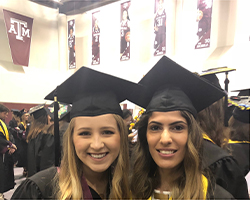Director’s Message
Howdy from Aggieland!

2017-2018 proved to be another exciting academic year for the Forensic & Investigative Sciences (FIVS) Program at Texas A&M University. We had another stellar class (14 total) complete the degree with graduates being accepted into a number of professional programs including, but not limited to graduate school in forensics, ecology, or genetics as well as law school. We also had two graduates become employed by the same agency (see graduate summary).
The program continues to grow and diversify as well. With the creation of the mentorship program through the Resurget Cineribus Society, student retention for freshman increased to more than 50% (double from the first year in terms of increased retention). This accomplishment will create new opportunities for the upper division classes as we determine the most appropriate methods for teaching 60 students in each class. FIVS 415 & 435 with myself and Dr. Tarone respectively should be a blast when we attempt to have debate sessions for them all. And, I am sure Dr. Tarone will enjoy reading 60 written assignments with 50 references each.
Additionally, we welcomed Mr. Scott Kovar to the program. He comes in with over 30 years of experience in crime scene investigation in the New York area. And, he is applying this experience to teaching the Crime Scene Investigation class. He has also developed a sophomore level class on impression evidence. This course was created to broaden the foundation for FIVS students as well as provide them some academic relief (i.e., allow students to take a course they enjoy when traditionally such subject matter was lacking) during their sophomore year.
As you can see, the year has been a great one for the FIVS Program. And, I cannot wait to see what 2018-2019 will bring for the program!
Regards from Aggieland,
Dr. T
Associate Professor & AgriLife Research Fellow
Director, Forensic & Investigative Sciences Program
Future Plans For 2018 Graduates
 AVA MOYER double minored in Chemistry and Psychology as she matriculated through the FIVS Program. She first became interested in forensic science during her junior year of high school when she had the opportunity to attend the Criminal Justice camp and Sam Houston State University. Going into college, she knew this was the field she wanted to pursue; however, she had no idea which discipline was most interesting to her until she interned at the Texas Department of Public Safety (DPS) Crime Laboratory in Austin, Texas the summer before her junior year of college. Over the course of the summer she was able to rotate throughout each of the lab’s sections such as trace evidence, latent prints, toxicology, and DNA/serology. Her time in the latent print section helped her decide that was the route she wanted to pursue. The next summer she returned to intern specifically with the latent print section and work on projects validating developing reagents and practicing comparisons. After graduation, she plans on returning to the DPS Crime Laboratory to continue her internship for a third summer to gain more experience while she completes her Master’s Degree in Forensic Science with the University of Central Florida’s Online Graduate Program.
AVA MOYER double minored in Chemistry and Psychology as she matriculated through the FIVS Program. She first became interested in forensic science during her junior year of high school when she had the opportunity to attend the Criminal Justice camp and Sam Houston State University. Going into college, she knew this was the field she wanted to pursue; however, she had no idea which discipline was most interesting to her until she interned at the Texas Department of Public Safety (DPS) Crime Laboratory in Austin, Texas the summer before her junior year of college. Over the course of the summer she was able to rotate throughout each of the lab’s sections such as trace evidence, latent prints, toxicology, and DNA/serology. Her time in the latent print section helped her decide that was the route she wanted to pursue. The next summer she returned to intern specifically with the latent print section and work on projects validating developing reagents and practicing comparisons. After graduation, she plans on returning to the DPS Crime Laboratory to continue her internship for a third summer to gain more experience while she completes her Master’s Degree in Forensic Science with the University of Central Florida’s Online Graduate Program.
 MICHELLE JONIKA, while majoring in FIVS, also received a minor in genetics. Since freshmen year, she knew that she wanted to study forensic science, but she really found her interest in genetics during her sophomore year. She really enjoyed all of her genetics classes associated with the minor and the forensic genetics classes associated with the major. Along with this she also became very interested in molecular genetics research within the field of forensic science specifically in Dr. Aaron Tarone’s laboratory. Since then she has conducted research in this area, and even completed an undergraduate thesis identifying genes as markers for sex within forensic entomology. After she graduates, she will continue her education at Texas A&M University with a Ph.D. in genetics, and she will continue her research with molecular genetics and applications in the field of forensic science.
MICHELLE JONIKA, while majoring in FIVS, also received a minor in genetics. Since freshmen year, she knew that she wanted to study forensic science, but she really found her interest in genetics during her sophomore year. She really enjoyed all of her genetics classes associated with the minor and the forensic genetics classes associated with the major. Along with this she also became very interested in molecular genetics research within the field of forensic science specifically in Dr. Aaron Tarone’s laboratory. Since then she has conducted research in this area, and even completed an undergraduate thesis identifying genes as markers for sex within forensic entomology. After she graduates, she will continue her education at Texas A&M University with a Ph.D. in genetics, and she will continue her research with molecular genetics and applications in the field of forensic science.
BRICE PHILLIPS is from Cypress, TX. Throughout his time at Texas A&M he has  been on the Pre-Law track of Forensic Science. But, he was not always sure what he wanted to do. It was not until the beginning of his Junior year that he began to seriously consider attending Law School. Once he began the upper level Forensic Science courses, he really started to see how the FIVS degree was intersecting with the legal system and how it could prepare him for Law School.
been on the Pre-Law track of Forensic Science. But, he was not always sure what he wanted to do. It was not until the beginning of his Junior year that he began to seriously consider attending Law School. Once he began the upper level Forensic Science courses, he really started to see how the FIVS degree was intersecting with the legal system and how it could prepare him for Law School.
After many applications and Law School visits, he has decided to attend the West Virginia University College of Law. He was drawn to this school due to the emphasis on Public Interest Law and their Innocence Project Clinical Program. Following Law School, it is his hope that he will be able to work in the public sector with the Innocence project or the American Civil Liberties Union. Through these agencies, he hopes to advocate for systematic reforms of our criminal justice system.
 KAMBRIE KISSMAN (left) and MILAGROS PACCHIONI (right) both completed the FIVS degree this spring and have accepted positions with the Case Management/Client Services Specialist in the Houston Forensic Science Center, Houston, Texas. They will be responsible for receiving, handling, and disseminating forensic evidence. Their duties will entail responding to callers in a courteous and timely manner, properly receive and catalog evidence, maintain delivery and pickup times for evidence, release evidence to investigators and laboratory technicians, coordinate responses to legal documents, and communicate with prosecutors, attorneys and the HFSC legal counsel. Case Management Specialists also prepare toxicological samples.
KAMBRIE KISSMAN (left) and MILAGROS PACCHIONI (right) both completed the FIVS degree this spring and have accepted positions with the Case Management/Client Services Specialist in the Houston Forensic Science Center, Houston, Texas. They will be responsible for receiving, handling, and disseminating forensic evidence. Their duties will entail responding to callers in a courteous and timely manner, properly receive and catalog evidence, maintain delivery and pickup times for evidence, release evidence to investigators and laboratory technicians, coordinate responses to legal documents, and communicate with prosecutors, attorneys and the HFSC legal counsel. Case Management Specialists also prepare toxicological samples.
A Year In Review: 2017-2018
The 2017-2018 academic year started well with 8 students receiving their Forensic Technician certificates at the RELLIS campus during the final Latent Print Processing course that took place last May! Students Maximilian Kirking, Jeremy Arnold, Jack Peabody, Michelle Jonika, Abby Jones, Ava Moyer, Milagos Pacchioni, and Katelyn McLeod endured two intensive weeklong courses during the spring 2017 semester covering such topics as lifting fingerprints from substrates, investigation techniques the pros use in investigating crime scenes, and proper photography and evidence collection. These students will be able to use these certificates to help them further their future careers.
In August, Drs. Jeffery Tomberlin and Aaron Tarone took the lead in participating in a newly-formed Center For Advanced Research in Forensic Science, which is funded in part by the National Science Foundation, the National Institute of Justice, and its government and industrial partners. Dr. Jeffery Tomberlin, Texas A&M AgriLife Research Fellow and director of the Texas A&M University Forensic and Investigative Sciences Program in College Station has been named the director for Texas A&M and his colleague, Associate Professor Dr. Aaron Tarone, has been named co-director.
The new center will have two focal points. One based at Florida International University (FIU) draws heavily on faculty expertise at FIU and among its partner institutions, George Washington University and Northeastern University, in the areas of forensic chemistry, forensic microbiology, forensic molecular biology, and forensic psychology. The second foci is led by the University of South Alabama (USA) and Texas A&M who will focus on digital forensics and data analysis as well as microbial and decomposition forensics, respectively.
For Texas A&M University, the new center builds on a strong history of research related to decomposition ecology and applications in the forensic sciences in conjunction with the development of the undergraduate Forensic and Investigative Sciences Program in the Department of Entomology, Tomberlin said. Through these initial efforts in entomology, research has diversified across colleges including, but not limited to the Colleges of Agriculture and Life Sciences, Engineering, Science, and Medicine.
In the summer of 2017, we had several students that participated in teaching forensics to local and statewide youths during the STARS and the Youth Adventure program camps that were held on campus. Thanks to teachers Dr. Adrienne Brundage, Craig Coates, and several volunteers, the kids had lots of fun learning about how forensic investigators use their tools to help solve crimes.
In December, junior Fatimah Bouderdaben received a fellowship opportunity to present research at the Texas A&M conference this February. The fellowship, known as the RISE (Race, Identity and Social Equality) Fellowship, provides undergraduates an opportunity to conduct research with an emphasis on race, identity and social equality. The students are selected to attend the National Conference on Race and Ethnicity (NCORE) and then present a research topic later in the spring at the Texas A&M RISE Conference.
The spring semester also started with a newly re-vamped structure for the FIVS 421 course that usually meets around the second week in January. This year, there were several new additions, including a new faculty member, as well as improved hands-on demonstrations and activities for the students to learn the same crime scene investigation techniques that law enforcement officials and forensic scientists use on a daily basis. Students also got to meet the new instructor Dr. Scott Kovar, who shared his real-life experiences and added a mock auto accident scene investigation to the lesson plan.
The spring semester also was good for several of our students as they received awards for their hard work in both classroom and research work. Senior Michelle Jonika received both first place in the Undergraduate Agriculture and Life Sciences category for her poster and the Sigma Xi STEM Award during the final day of the conference held during the week of March 19-23. Senior Abby Jones also received second place in the undergraduate student oral category at this year’s Ecological Integration Symposium for her talk titled “Mass mortality events in relation to carrion ecology and forensic entomology: emphasizing taxonomic resolution.”
Twenty-one students from the Aggie Forensic and Investigative Sciences Organization were sent out in the community to help others during the 36th annual The Big Event in March. This year, students were sent out to help homeowners in three locations in Bryan and College Station doing various tasks including raking leaves, cleaning gutters, cutting and cleaning out brush, and painting fences and furniture. The students had a lot of fun meeting new people and helping make a difference in Aggieland!!
In April, several students were recognized this during the Department of Entomology’s annual Undergraduate Recognition Banquet on Thursday, April 12 at the Thomas G. Hildebrand Equine Complex. Congratulations to all that received awards!!
Senior Michelle Jonika also received the prestigious Senior Merit Award from the College of Agriculture and Life Sciences during its annual Convocation. Jonika received the award for her hard work and dedication through her college career!! Congratulations to you Michelle!!